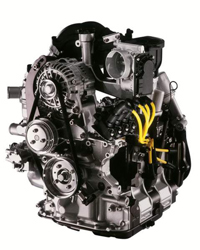B15B0 Engine Code Repair
Meaning of B15B0 engine trouble code is a kind of body trouble code and B15B0 code can be about replacing a broken oxygen sensor can eventually lead to a busted catalytic convertor which can cost upwards of $2,200. Taking your car into a shop will cost you around $210 depending on the car. However, an oxygen sensor is easy to replace on many cars and is usually detailed in the owner's manual. If you know where the sensor is, you only have to unclip the old sensor and replace it with a new one. Regardless of how you approach it, you should get this fixed right away.
B15B0 Fault Symptoms :
- Check engine light comes on
- Engine stalling or misfiring
- Engine performance issues
- Car not starting
If one of these reasons for B15B0 code is occuring now you should check B15B0 repair processes.
Now don't ask yourself; What should you do with B15B0 code ?
The solution is here :
B15B0 Possible Solution:

The firing order is an important part of the overall design of the engine and is determined during the design of the engine to eliminate as much engine vibration as possible. If the firing order is changed or adjusted, the ignition from the spark plug is delivered at the wrong time and the engine functions poorly or does not run. The firing order for a particular engine is typically found in the repair manual specific to that model.
B15B0 Code Meaning :
B
OBD-II Diagnostic Body (B) Trouble Code For Engine
1
Fuel And Air Metering
5
O2 Sensor Heater Circuit Malfunction
b
0
Reverse Input Circuit
The catalytic converter has an oxygen sensor in front and behind it. When the vehicle is warm and running in closed loop mode, the upstream oxygen sensor waveform reading should fluctuate.
B15B0 OBD-II Diagnostic Body (B) Trouble Code DescriptionB15B0 engine trouble code is about Reverse Input Circuit.Main reason For B15B0 CodeThe reason of B15B0 OBD-II Engine Trouble Code is O2 Sensor Heater Circuit Malfunction. |
B15B0 code on vehicles with electronically controlled automatic transmissions, the 3-4 shift solenoid is responsible for actuating the hydraulic circuits to activate clutches or bands that change gears inside the automatic transmission.
